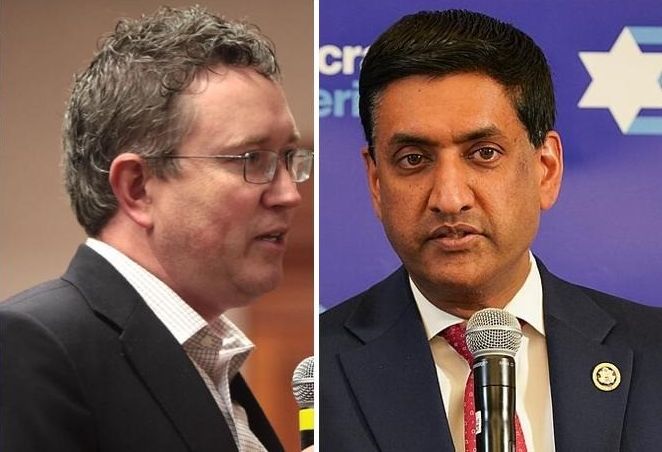A bipartisan group of House lawmakers wants to limit President Trump’s ability to go to war with Iran.
Rep. Thomas Massie (R-Ky) introduced a war powers resolution on Tuesday, which, if passed, would prohibit U.S. involvement in the ongoing war between Iran and Israel.
“This is not our war. But if it were, Congress must decide such matters according to our Constitution,” Massie posted on social media on Monday, previewing his intention to introduce the measure. He added, “I invite all members of Congress to cosponsor this resolution.”
Rep. Ro Khanna (D-Calif) almost immediately signaled his intention to co-sponsor. “No war in Iran. It’s time for every member to go on record. Are you with the neocons who led us into Iraq, or do you stand with the American people?” Khanna replied.
Other House members have since expressed their support for the Massie-Khanna resolution. “I look forward to supporting this War Powers Resolution. The American people aren't falling for it again,” said Rep. Rashid Tlaib (D-Mich.).
The bill will be privileged, meaning that House leadership can’t torpedo it before it reaches the House floor for a vote, and must be voted on within 15 calendar days.
At least 14 other representatives have signed on as cosponsors so far.
This coincides with a war powers resolution from Sen. Kaine (D-Va.) and a bill to prohibit the funding of offensive military measures against Iran from Sens. Bernie Sanders (I-Vt.), Elizabeth Warren (D-Mass.), and Chris Van Hollen (D–Md.).
For his part, President Trump hasn’t presented a consistent message on the topic. Back in May, the president strongly indicated that he was ready to make a deal with Iran. Additionally, the United States and Iran were set to partake in another round of nuclear negotiations in Oman just before Israel began its bombardment of Iran.
However, Trump posted on Monday, “Simply stated, IRAN CANNOT HAVE A NUCLEAR WEAPON. I said it over and over again! Everyone should immediately evacuate Tehran!”
This weekend, a meeting between U.S. and Iranian officials is under consideration, but Trump commented, “I’m not too much in the mood to negotiate.”
Iran and Israel are still trading missile fire five days into the conflict, both sides claiming hits on civilian and industrial targets. It seems as though the United States did not directly participate in the initial round of attacks, but has involved itself through blocking Iranian missiles, providing intelligence, and even helping Israel gain “complete and total control of the skies over Iran,” according to Trump.
- Rep. Massie: sell off the U.S. embassy compound, get out of Iraq ›
- Massie interview: Houthi strikes 'not America First' ›
- Senate blocks effort to rein in Trump's war on 'narco-terrorists' | Responsible Statecraft ›
















